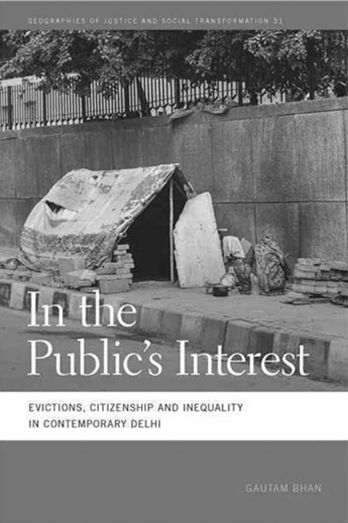In urban areas like Delhi, the poor face an acute problem of space for their survival. Most of them are compelled to live with the tag of ‘encroacher’ and face a perpetual threat of eviction from their ‘residence’. The book under review presents a meticulous ethnographic study of the lives of those citizens of Delhi who were living ‘illegally’ and faced eviction due to the emergence of ‘judicial urbanism’. The book explores the complex aspects related to urabn planning, changing nature of Public Interest Litigations (PILs) and definitions of public interest, evictions and relocation/resettlement of different ‘illegal’ bastis, social movements in bastis and their strategies to counter the evictions etc., in Delhi. In other words, it focuses on the dilemma of the marginalized sections of citizens and their social movements regarding the judicialization of urban governance because they cannot deal with judiciary with the same strategies as they have been dealing with their elected representatives and the government officials. Judicial pronouncements in many cases led to the evictions and the most tragic part is that evicted families not only lost their ‘homes’ and social milieu but most of them were never relocated/resettled by the State. For instance, between February and April 2004 Pushta or (Yamuna) riverbank bastis were demolished by Court order and many families were relocated in the north-western periphery of New Delhi, Bawana. However, ‘only 30 per cent evicted households received any form of resettlement of rehabilitation’ (p. 1).
October 2016, volume 40, No 10

